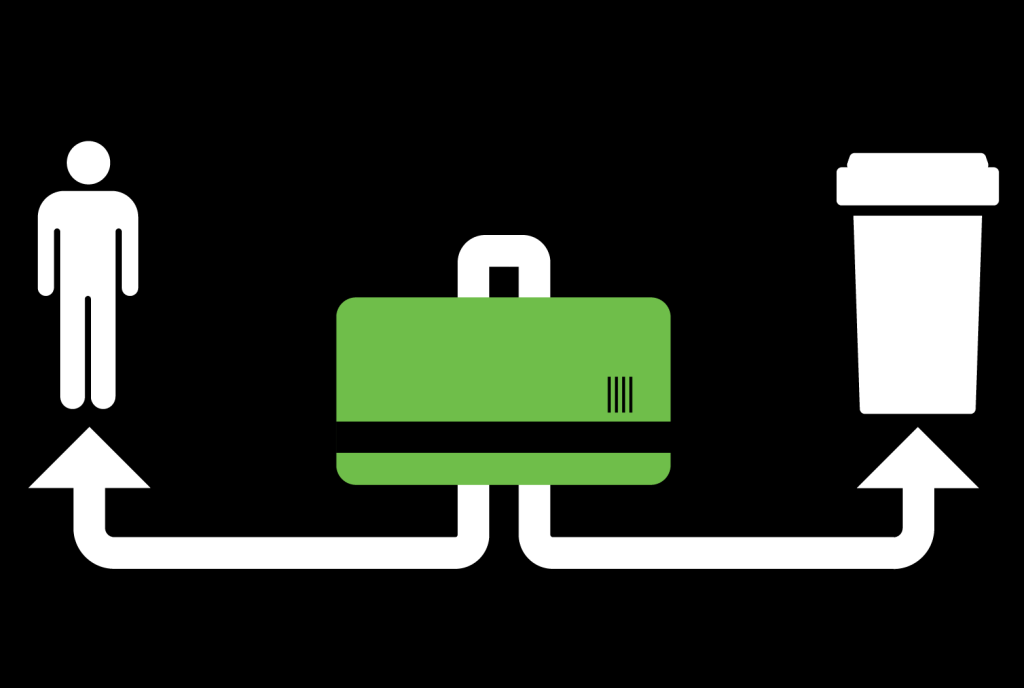1. Understanding Decentralization
Decentralization refers to the distribution of authority, control, or decision-making from a central entity to multiple participants or nodes. Initially prominent in the fields of technology, particularly in blockchain and cryptocurrencies, decentralization is built on the principle of removing intermediaries and distributing power across a network of peers.
In traditional centralized systems, institutions like banks, governments, or large corporations typically hold control over data, financial transactions, and decision-making processes. In a decentralized system, each participant (or node) has an equal say and can take part in the decision-making or operation without a single authority in control.
2. Key Characteristics of Decentralization
- No Single Point of Failure
- In a decentralized network, data and control are distributed across many nodes, rather than being concentrated in a central entity. This makes the system more resilient, as there is no single point of failure. If one node goes down, the rest of the network continues to function.
- Increased Transparency
- Decentralized systems, particularly in blockchain technology, offer high levels of transparency. Every transaction or action taken within the network is recorded and visible to all participants, which helps in building trust among users.
- Enhanced Security
- Without a central authority controlling the system, it becomes harder for hackers to attack the network as a whole. Decentralized systems often employ cryptography and consensus algorithms, ensuring that data is secure, immutable, and tamper-proof.
- Autonomy and Privacy
- Participants in decentralized systems often have more control over their own data and decisions. For example, in a decentralized financial system, users have full control over their assets, unlike traditional systems where a bank or financial institution manages the funds.
3. Decentralization in Technology: Blockchain and Cryptocurrencies
Blockchain is the most prominent example of a decentralized technology. It operates on a distributed ledger system where multiple computers (or nodes) work together to validate and record transactions, ensuring no single authority has control over the data. Cryptocurrencies like Bitcoin and Ethereum rely on blockchain technology to operate without central banks or governments.
In these decentralized systems, transactions are validated by participants in the network (often through processes like proof of work or proof of stake). This decentralized validation ensures that no one can manipulate the system, making it more transparent and trustworthy.
4. How Does Decentralization Affect Our Daily Lives?
While decentralization was initially seen as a niche concept primarily related to cryptocurrencies and blockchain, its impact is beginning to expand across various aspects of our daily lives.
- Financial Services: The Rise of DeFi (Decentralized Finance)
One of the most significant changes decentralization has brought is to the world of finance. Traditional financial systems, controlled by banks and central authorities, often impose high fees, slow transaction speeds, and limited access to financial services. Decentralized finance (DeFi) platforms aim to eliminate intermediaries like banks and offer peer-to-peer financial services such as lending, borrowing, and trading.- Impact: DeFi makes financial services more accessible and affordable. For example, people in underbanked or unbanked regions can now access financial services without needing a traditional bank account.
- Data Privacy and Control
In traditional systems, companies like Facebook, Google, and Amazon collect vast amounts of data from users and store it on centralized servers. With decentralized systems, individuals regain control over their personal data, and data storage is distributed, making it harder for third parties to misuse or exploit it.- Impact: Decentralization provides individuals with more autonomy over their digital identities. Technologies like decentralized storage or decentralized social networks (such as Mastodon) allow users to control their data, reducing the power of large corporations.
- Content Creation and Distribution
Decentralized platforms are beginning to emerge as alternatives to traditional social media networks and content-sharing platforms. Instead of platforms like YouTube, Facebook, or Instagram controlling what content gets seen and how creators get paid, decentralized platforms enable content creators to publish directly to their audience, often with lower fees and fewer content restrictions.- Impact: Content creators benefit from greater freedom, control over their earnings, and the ability to reach a global audience without intermediary platforms deciding what is allowed.
- Supply Chain Transparency and Trust
Traditional supply chains often suffer from a lack of transparency, which can lead to inefficiencies, fraud, and ethical issues like child labor or environmental harm. By using decentralized systems, supply chains can become more transparent. Blockchain, for example, can be used to trace products from their origin to the final consumer, ensuring they are ethically sourced and meet quality standards.- Impact: Consumers gain trust in the products they buy, knowing they come from verified and ethical sources. Companies that adopt decentralized supply chain solutions can build a reputation for transparency and accountability.
- Healthcare: Decentralized Medical Records
Healthcare systems often suffer from fragmented and siloed data, where patient records are spread across different institutions and providers. Decentralized technologies can create a system where medical records are securely stored and shared across various healthcare providers, allowing for more accurate and timely treatment.- Impact: Patients have greater control over their health data and can easily share it with healthcare providers. This could lead to better healthcare outcomes, faster diagnoses, and a more personalized treatment approach.
- Voting and Governance
Decentralized technologies can be used to create more transparent and tamper-proof voting systems. Blockchain-based voting systems can ensure that votes are cast and counted without the risk of manipulation, fraud, or errors. Decentralized governance allows for more participatory decision-making in organizations, communities, and even governments.- Impact: Citizens or members of an organization have a more direct role in governance and decision-making, leading to greater transparency, fairness, and trust in the process.

5. Challenges of Decentralization
While decentralization offers many advantages, it also comes with its challenges:
- Scalability Issues
Decentralized networks can struggle with scalability, especially when the number of participants grows. Consensus algorithms like proof of work, used in cryptocurrencies, require significant computational resources and energy, which can slow down the system. - Regulatory and Legal Hurdles
Decentralized systems, especially in sectors like finance and healthcare, face regulatory challenges. Governments and regulatory bodies often struggle to keep up with technological advancements and find it difficult to regulate decentralized entities that don’t adhere to traditional legal frameworks. - Security Risks
While decentralization offers enhanced security, it is not without risks. The responsibility for securing data is often spread across many participants, and vulnerabilities can arise if any of these nodes are compromised. Moreover, decentralized systems are often targeted by hackers seeking to exploit weaknesses. - User Experience
Many decentralized platforms can be more complicated to use than their centralized counterparts. For example, users might need to manage their private keys or wallets, which can lead to security issues if mishandled.
Conclusion
Decentralization is transforming multiple aspects of our daily lives, offering more control, transparency, and security. From financial services and healthcare to data privacy and voting systems, the impact of decentralized technologies is profound. However, as with any technological shift, it comes with challenges like scalability, regulatory hurdles, and security risks that need to be addressed for the full potential of decentralization to be realized.
In the future, we are likely to see even more widespread adoption of decentralized systems as the technology matures and users become more familiar with its benefits and complexities. Ultimately, decentralization has the potential to shift power away from centralized entities and empower individuals to have greater control over their digital lives.













































